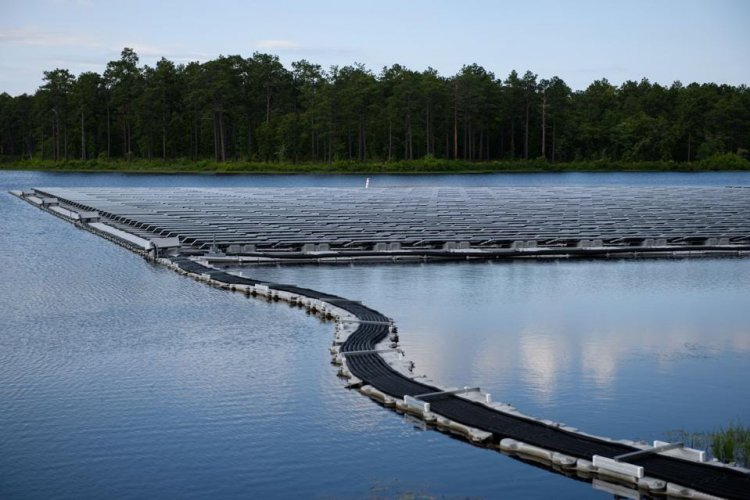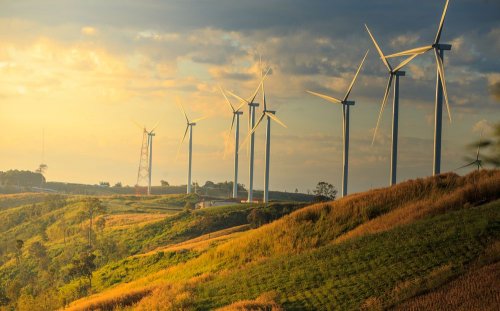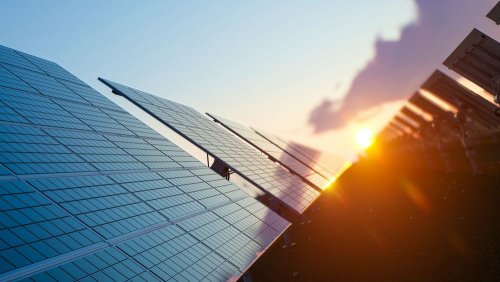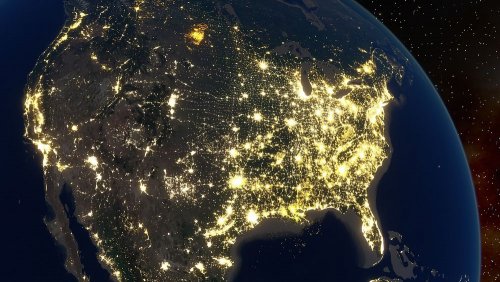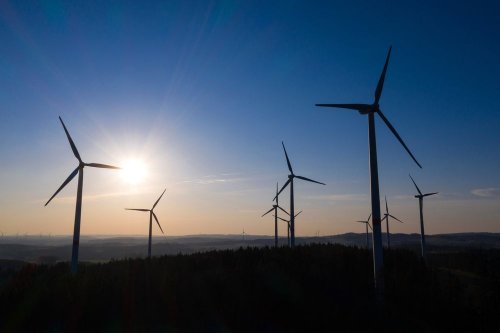The US military has launched a large floating solar battery, the Floatovoltics (FPV), at the country's largest domestic military base in North Carolina.
FPVs make up only 2% of all domestic solar installations, but have significant potential, as water covers two-thirds of the planet's surface, according to Forbes.
Such SES can solve industry problems, including exceptional land use, energy distribution and heat dissipation, as well as help drought-affected water bodies.
Although the solar battery is the cheapest RES technology, it has a lower energy density than fossil fuels. On average, traditional solar farms require more space per watt than fossil fuels, such as natural gas has about 80 times the capacity.
Solar developers often face with opposition from residents, who believe that SES reduces the cost of housing, harms the environment and leads to the loss of arable land.
However, floating SES is reducing the need for land needed to produce renewable energy. They can be made in different shapes according to location, in particular shore ponds, lakes, reservoirs, dams or coastal waters. Such technology can free up space for agriculture, infrastructure and other needs.
Float electricity also has the advantage of increased efficiency not only over ground installations, but also as a multiplier of hydropower. After all, when installed in reservoirs of hydroelectric power plants, such SES reduce evaporation and can be connected to existing power grids.
The material noted that float electricity can enhance a reasonable program of renewable energy, despite the higher initial costs, because the cost of the initial introduction increases by 10-15% compared to terrestrial photovoltaic devices
The technology also has some disadvantages, in particular corrosion of equipment can reduce their durability, service life of 25-30 years, and will require additional maintenance, especially in waters with high salt levels, as well as intermittent.
Such projects are common in East Asia, where most of the land available for large-scale solar farms has already been allocated to buildings, industry or agriculture. They are widely represented in Japan, China, India, South Korea, Indonesia, Vietnam, Thailand and Malaysia.
The development of battery technology is both an opportunity and a bottleneck for the future development of FPV. Any floating solar installation, especially those used by the US military, must have sufficient capacity. Solar energy production will increase if producers can develop appropriate storage technologies. American companies such as Tesla, Westinghouse and General Motors already leading in this arena.
The current dependence of the world on terrestrial solar energy to achieve climate goals threatens US energy security, as China is the largest producer of solar panels. However, the security of FPV supply chains provides an opportunity for mutual investment and promotion that is not subject to pressure from China.
Manufacturers of floating solar panels in countries such as Singapore, South Korea, Indonesia and Japan can replace Chinese imports and benefit from American "friendshoring", which helps increase the security of American supply chains.
“The future of sustainable energy is likely to be increasingly affected by environmental constraints, especially land use restrictions. The fields of solar panels and the forests of wind power plants have many scientific, logistical and political obstacles. Float electricity is promising and profitable, as it operates on existing water surfaces that are not otherwise used,” the material said.
Forbes also noted that FPV should be recognized as a critical element of America's necessary energy transformation.
We will remind, in Spain they presented prototype floating SES in the form of a trimaran.
As EcoPolitic reported earlier, US President Joe Biden called on the world community to accelerate the transition to clean energy amid the impact of Russia's full-scale war against Ukraine on energy markets around the world.

